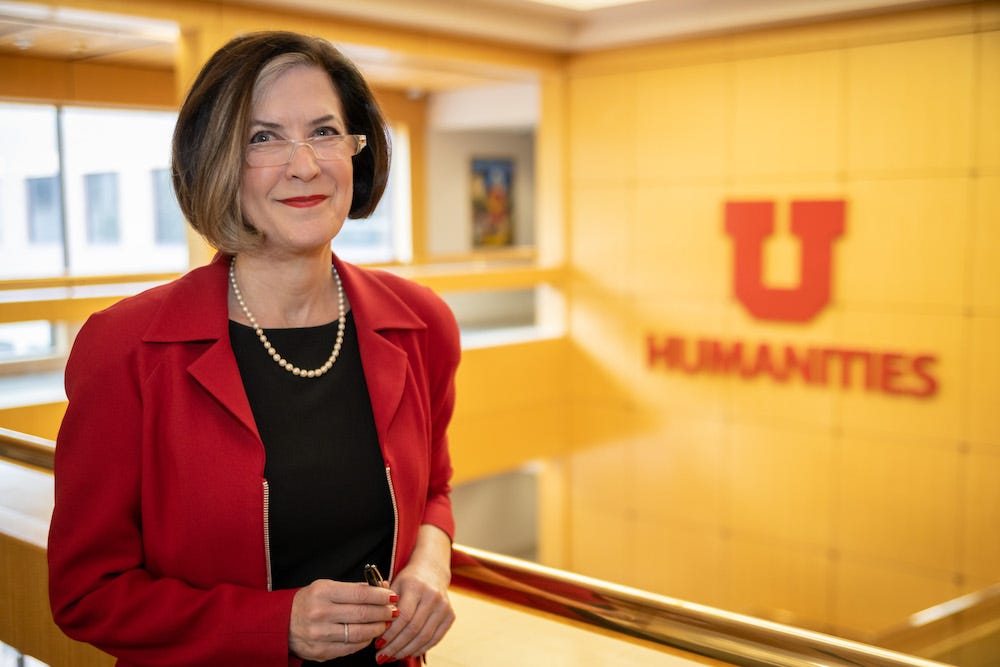Last week I resigned my position as Dean of the College of Humanities at the University of Utah. I have a few months of accrued leave and a new role as Special Advisor for Humanities Diplomacy. I will be diving even more deeply into how AI is going to change higher ed. I’ve written about AI here, here, here, and here. I’ll be traveling and reaching out to AI experts around the country to get a clearer picture of what is probable and what university leaders should prepare for.
The higher ed sector had challenges enough before AI: academic freedom, chained speech, the fraying of the academic social contract. Many of the stated reasons the public has lost faith in higher ed, beyond the high sticker prices and low graduation rates, have seemed humanities-adjacent: faculty have loud political opinions and students aren’t workforce ready.
Humanities fields are better positioned to teach the relationship of human knowledge and artificial intelligence than business schools. Yet while Sci Fi as a humanities field has been envisioning AI and new relationships to technology for centuries, Sci Fi humanists, oddly, have rarely envisioned new forms of higher ed. (The forthcoming Star Trek: Starfleet Academy may be an exception but the descriptions suggest it’s old-fashioned, not AI-disrupted.)
Why am I stepping away from administration? As any academic leader in a public university in the efficiency era will tell you, the task of getting faculty and staff to think big while demanding they check endless small boxes wears everyone down. I could think small myself and simply envision AI taking some of the bureaucratic efficiency tasks off faculty shoulders but I’d like to think bigger and reimagine higher ed in the AI era where everyone thinks big and where the returns to human knowledge are enormous.
I have been honored to lead the College of Humanities for the past two and a half years. We’ve grown programs and done new and innovative work – establishing a new Great Books / Great Science Books sequence; establishing an undergraduate major in Diplomacy; growing Games Humanities expertise; launching the Utah Prison Education Program; growing a Medical Humanities program; growing a Religious Studies program and establishing a Religion Reporting certificate. We’re growing programs on our Asia campus. I’ve been glad to rebuild relationships with local Shoshone communities whose elders recalled their grandparents recording stories on reel-to-reel tapes for a long-dead faculty member decades ago; we recovered the tapes, re-digitized them, and made them available. We are rebuilding our Middle East Center back to its national prominence. I am most gratified that we are a growing Humanities college: our enrollments up where elsewhere in the country they are falling and our dedicated student success team is ensuring increased retention and graduation rates.
While I am turning to writing and advising on humanities in the age of AI I am leaving the College of Humanities in excellent hands, with a superb team of Associate Deans, Chairs, Directors, and staff, and a truly outstanding faculty. Thinking big with them has been a privilege.




congratulations Hollis! Looking forward to seeing the next chapter.
I’m eager to hear more about this move!